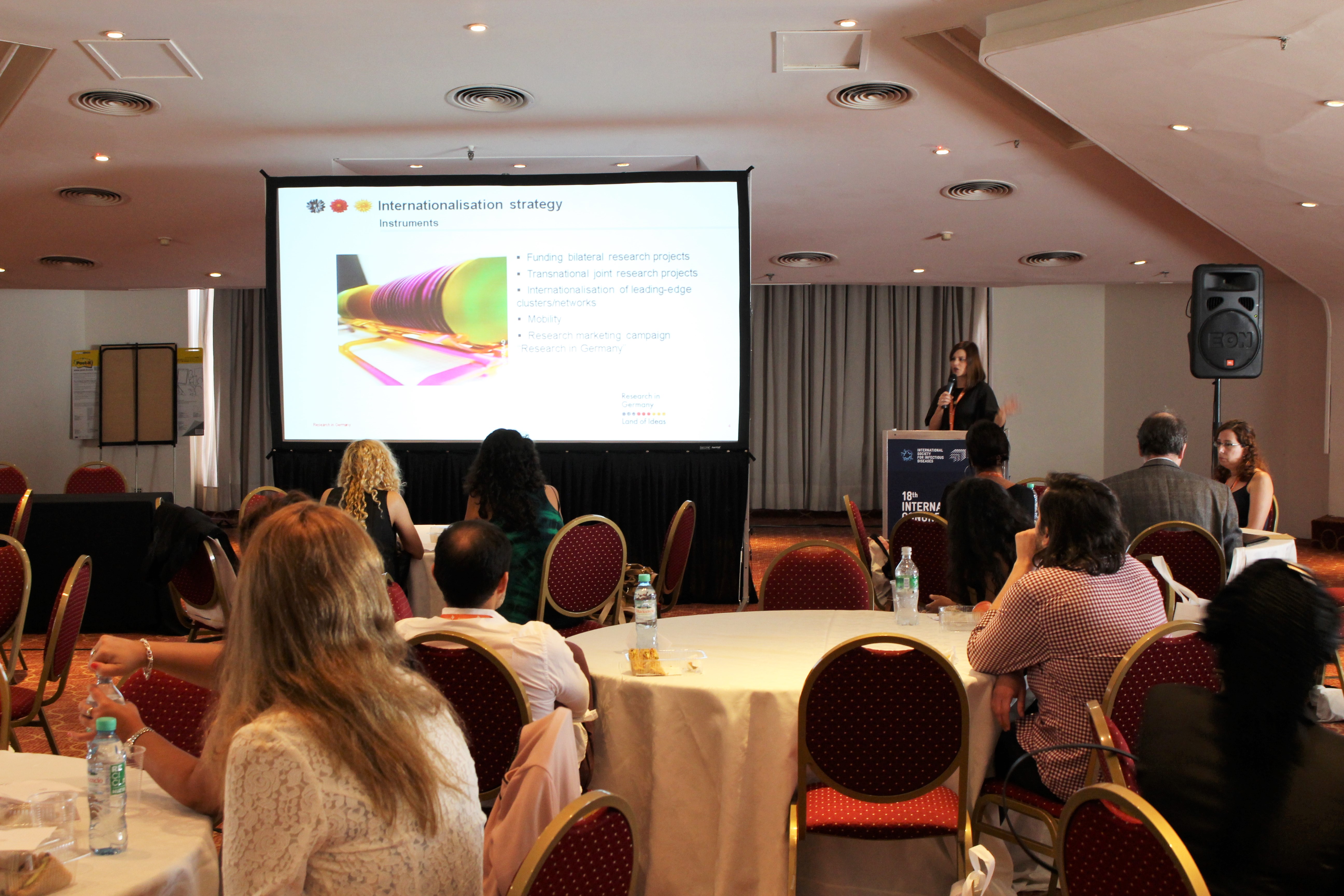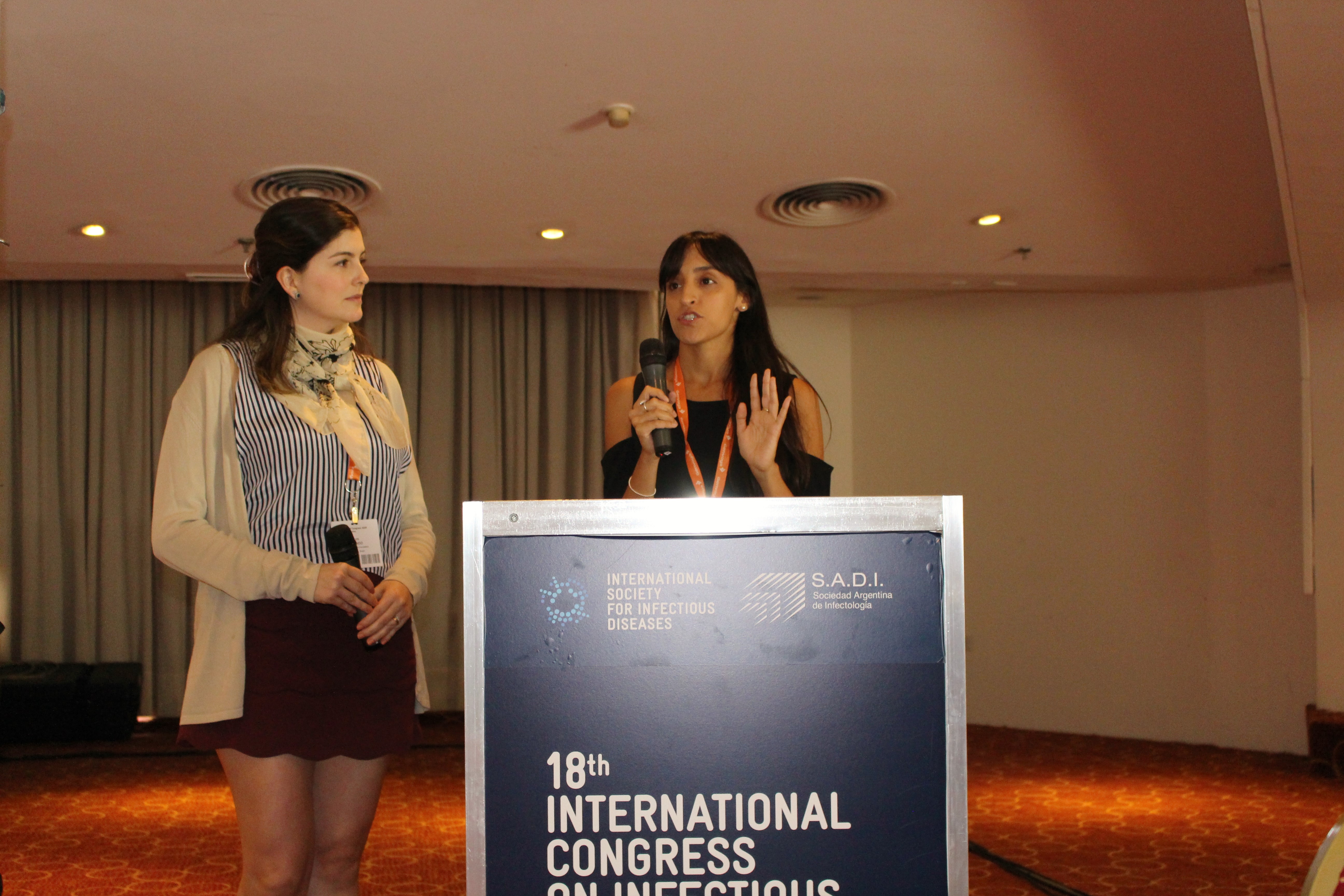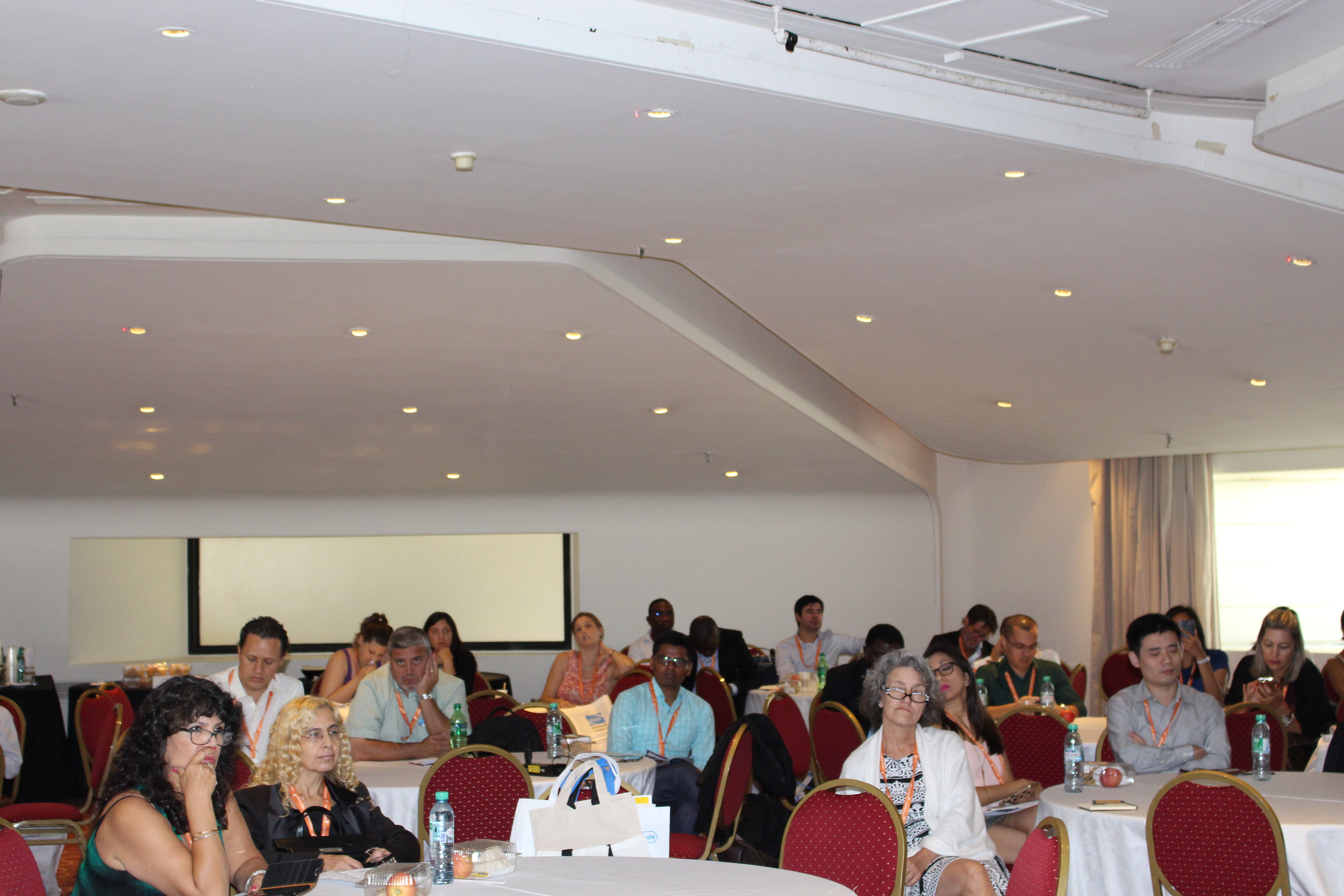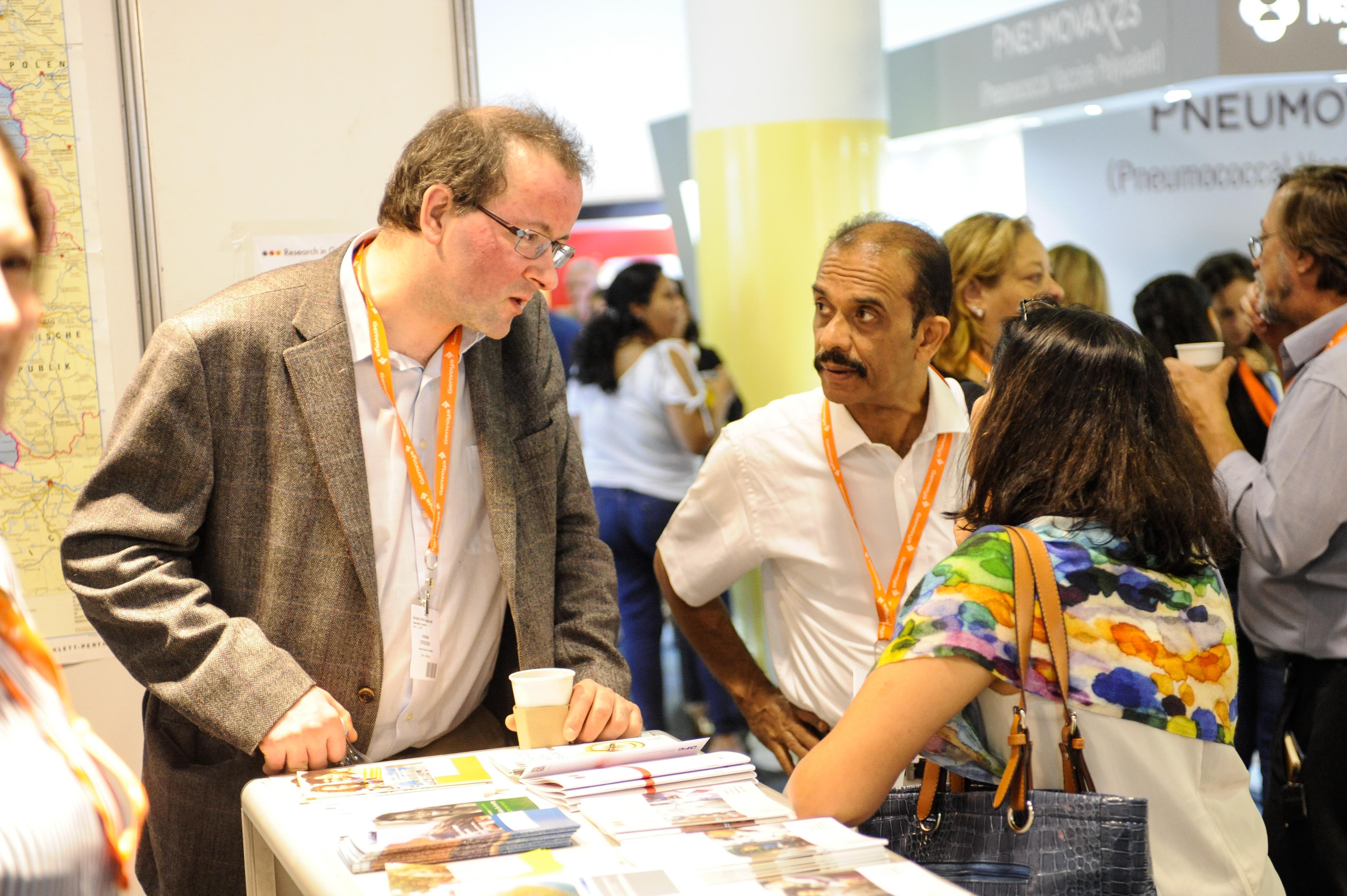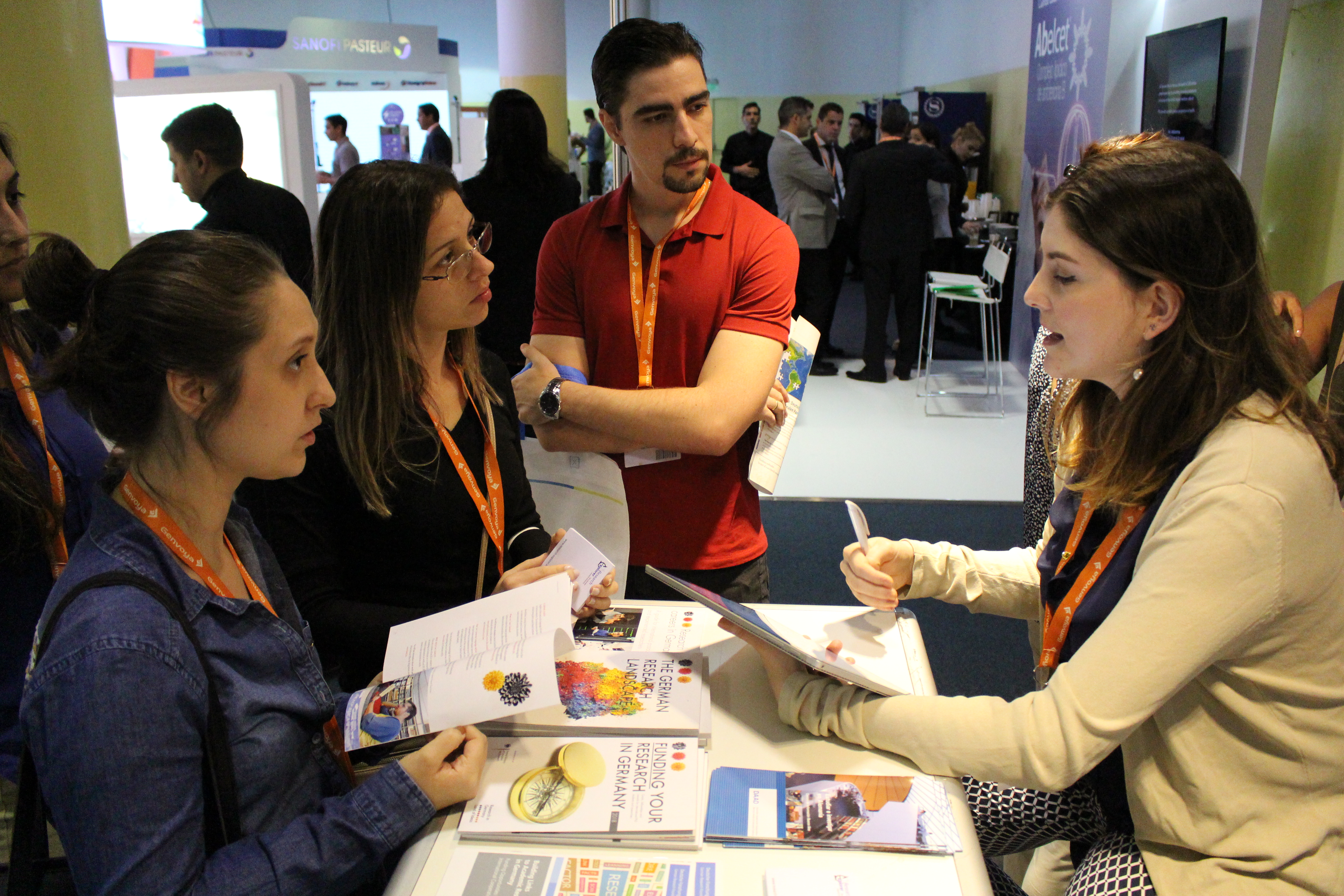Research in Germany presents itself in Buenos Aires
(20.03.18) At the beginning of March, the 18th International Congress on Infectious Diseases (ICID), organised by the international association ISID and the local association SADI, took place in the Argentinian capital. The topics covered included all areas of infectious diseases, with a particular focus on the big challenges in Latin America, including Zika and dengue fever. In addition, ISID is active in the One Health movement, an interdisciplinary initiative created to improve healthcare worldwide.
During the lunch session, Maxi Neidhardt (DFG Office Latin America) presented the Research in Germany initiative
© DFG
“ISID meetings are distinguished by their unique blend of basic research and clinical practice [...] and by the wide range of countries represented. One particularly important aspect for us is the exchange between senior and junior researchers,” asserted ISID President, Jon Cohen.
The basic biological principles underlying many infectious diseases are often poorly understood. These can vary significantly depending on the hygiene situation, climate and social factors, making infectious diseases difficult to treat. For many such diseases, the number of cases in Germany is small. However, the country has considerable expertise in infection biology. Meanwhile, countries in the global South often have large patient cohorts, with the result that medical scientists here have a high level of clinical knowledge. This makes international cooperation a very important aspect of fighting infectious disease, particularly as these diseases do not stop at international borders but can spread quickly across the globe. Early career researchers from all over the world can acquire essential methodological skills in Germany which they can then put to use when they return to their home countries.
The Research in Germany lunch session took place on the very first day and was attended by over 60 people from all over the world. The programme comprised talks by the funding organisations DFG, the Alexander von Humboldt Foundation and the DAAD, which presented their programme portfolios.
Dr. Andreas Strecker, programme director for the areas of microbiology, immunology and neurosciences, had travelled from the Head Office in Bonn to support the event with expert information. He also contributed to the lunch session with a talk about the programmes for early career researchers, including useful tips and hints for a successful application.
For the first time, the programme also included a joint talk with a local partner organisation: Laura Redondo from the DFG Office Latin America and Catherina Dhooge, coordinator of the Department of International Cooperation at the Argentinian funding organisation CONICET, presented the joint activities and financing options for cooperations.
The audience followed the presentations with great interest, gaining an authentic glimpse into the research location of Germany thanks to a report by Humboldtian Prof. Dr. Jimena Ruiz, who is also active as a Liaison Scientist for the organisation in Argentina.
In discussions with workshop participants and visitors to the stand, it became clear that the research interests of the mostly South American visitors have a strong clinical focus with the aim of effectively combating infectious diseases. In many cases, however, there is insufficient knowledge to develop successful treatments and vaccines. This could provide future opportunities for productive cooperation for both sides. The DFG is therefore looking to strengthen partnerships with Latin American funding organisations in this crucial area of research.
